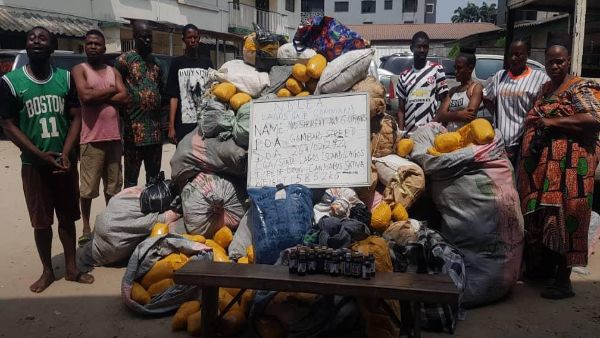Sahel bloc's import tariff on ECOWAS threatens West Africa trade, AfCFTA
The Alliance of Sahel States (AES), comprising the junta-led nations of Mali, Niger Republic, and Burkina Faso, has introduced a 0.5 percent levy on imported goods from several West African countries, including Nigeria.
The levy, announced on Friday, comes as the three countries distance themselves from the Economic Community of West African States (ECOWAS). It applies to all goods imported from outside the three countries, excluding humanitarian aid.
The funds generated are intended to support the AES’s economic and military goals, though specifics have yet to be revealed, signaling the bloc’s intended evolution from a security pact formed in 2023 into an economic and military alliance, with plans for biometric passports and closer cooperation.
This decision could have far-reaching consequences on trade within the region, particularly concerning the African Continental Free Trade Area (AfCFTA), experts say.
Obiora Madu, chairman of Multimix group and supply chain expert, noted that while the move isn’t surprising, it will disrupt regional trade significantly. “It’s going to be a problem because, as landlocked countries, their shipments pass through Nigeria and other West African states,” Madu said, explaining that the import levy acts as a trade barrier likely to reduce exports from Nigeria to the AES members.
But ECOWAS could lose out as well. The AES’s exit from ECOWAS last year, driven by frustration over the bloc’s perceived failure to support their battle against Islamist insurgents, has heightened tensions between the Sahel nations and influential democracies like Nigeria.
Read also: Mali, Burkina Faso, Niger impose 0.5% import levy on ECOWAS nations to fund new alliance
Madu argued that the AES countries’ departure could pave the way for a stronger, independent integration within the region. “The Senegalese people are getting together, and what is likely going to happen is that they will look elsewhere for integration. If they achieve stronger integration, tariffs could rise,” he said.
Nigeria, a key trade player in the West African region, exports refined petroleum products, cement, manufactured goods, and food products like grains, beverages, and vegetable oils to Mali, Niger, and Burkina Faso.
Trade data from 2022 obtained from the Observatory of Economic Complexity (OEC) shows that Nigeria’s exports to Niger, where the operational instruments governing trade under the AFCFTA regime were launched in 2019, were valued at approximately $290 million, while exports to Burkina Faso and Mali amounted to $22 million and $17.4 million, respectively.
The imposition of the import levy is expected to raise the cost of these goods, leading to a likely drop in exports to the AES countries.
While Mali, Niger, and Burkina Faso have left ECOWAS, they remain part of AfCFTA.
The trade agreement, which seeks to establish a single market for the continent’s 1.3 billion people with a combined GDP of up to $3 trillion, aims to eliminate tariffs on 90 percent of goods while addressing non-tariff barriers. This goal falls further out of reach.
“AfCFTA will definitely be affected. It’s easier to integrate regions that are already cohesive,” Madu said. With strong integration in North and East Africa, the West African region risks becoming the weakest link in the continental trade framework.
The introduction of the levy also threatens to disrupt supply chains in the region. Shipments to these landlocked countries may be rerouted, causing delays. “The landlocked countries may decide to concentrate on Togo for transshipments, but that will likely slow down transactions,” our expert said.
This disruption may force AES countries to seek alternative trade routes, similar to how Rwanda, a landlocked nation, uses ports in Tanzania, Uganda, and Nigeria for international trade.
The AES’s new levy also risks exacerbating border tensions and potentially leading to retaliatory actions by ECOWAS. “On the whole, at the end of the day, everybody is losing,” Madu concluded.
Bethel is a journalist reporting on migration, and Nigeria's diaspora relations for BusinessDay. He holds a Bachelor's degree in Mass Communication from the University of Jos, and is certified by Reuters and Google. Drawing from his experience working with other respected news providers, he presents a nuanced and informed perspective on the complexities of critical matters. He is based in Lagos, Nigeria and occasionally commutes to Abuja.










